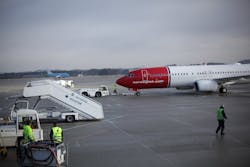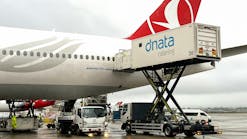Ground Handling Tips to Prepare for Another Challenging Summer
The summer of 2022 presented significant challenges for the aviation industry. Eurocontrol, the European air traffic management body, reported that departure punctuality fell below 50 percent in early July, and it remained between 50-60 percent for the rest of the summer. With the high season for 2023 fast approaching, Erlend Birkeland, quality and safety officer at Aviator Airport Alliance, a full-range provider of aviation services at 15 airports across the Nordics, shares insights on how to prepare for a challenge of unknown magnitude.
Success in an Early Start
“It is difficult to predict what exactly this summer will bring, yet we have already begun our preparations,” Birkeland explains. “The hiring process for qualified staff for the positions required during the high season typically begins in late February or early March to allow sufficient time for training. While the company conducts interviews with potential candidates at this time, new hires do not begin working until late May or early June when the training process commences.”
Birkeland clarifies that while Aviator hires new employees to prepare for the summer season, the company does not hire staff exclusively for this period.
“Tasks involved in ground handling services demand extensive training and experience, which cannot be accomplished solely during the summer months. We aim to retain employees beyond the high season, and thus, look for individuals who are interested in working part-time during weekends after the summer season ends. This approach allows the company to build on employees’ experience, improve their skills, and enable them to fill in for other staff when required. Additionally, our part-time staff often increase their hours and work almost full-time during the summer season,” Birkeland says.
Streamlining Operations
Another practice that allows Aviator to better prepare is employing a specific shift plan to streamline operations during busy periods. Birkeland explains that the ramp department creates a separate shift plan for the midsummer period (June-August) as it typically differs from the rest of the year. By creating a dedicated shift plan for this period, the company saves time that would have otherwise been spent rearranging shifts to match the midsummer schedule.
Challenges are Yet Unknown
Birkeland remains cautiously optimistic about the upcoming summer season, despite the challenges encountered during the previous year.
“Only time can tell what the season will bring. However, I believe summer may be less hectic compared to the previous year. Airlines and airports have had more time to address staffing issues, and with inflation potentially slowing down passenger holiday planning, a calmer situation may arise. Nevertheless, we remain committed to our preparations to ensure that we deliver high-quality services throughout the summer season,” Birkeland says.




